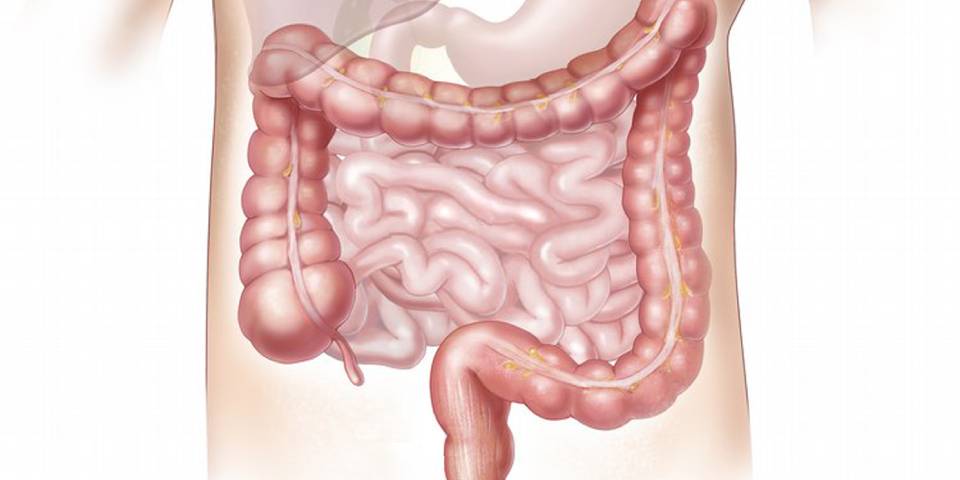Digestive issues, from occasional discomfort to chronic conditions, affect millions globally, disrupting day-to-day life and health. The human digestive system, vital for nutrient processing and waste elimination, can falter, causing issues like upset abdomens, persistent diarrhea, or severe pain. In India, seven out of ten people suffer digestive problems, emphasizing their wide impact. This blog, written by the best gastro specialist in Bangalore, Dr. Bhushan Chittawadgi, explores common gastrointestinal disorders, their symptoms, and preventative strategies. Dr. Chittawadgi’s expertise in digestive health provides precious perceptivity for managing and perfecting overall well-being. Whether seeking relief or aiming to improve digestive health, understanding these issues is pivotal for a healthier, more comfortable life.
What Is a Digestive Disease?
Digestive diseases encompass a wide range of conditions that affect the gastrointestinal( GI) tract. This includes the esophagus, stomach, intestines, liver, pancreas, and gallbladder. Digestive diseases can range from mild to severe and can be acute or habitual. They frequently result from a combination of genetic, lifestyle, and environmental factors.
9 most common digestive disorders:
- Gastroesophageal Reflux Disease (GERD): Reflux happens when stomach acid moves up into the esophagus, occasionally reaching the throat or mouth, causing vexation and chest pain( heartburn). Gastroesophageal reflux( GER), generally known as ‘ acid reflux,” can happen after feeds or with certain drinkables like coffee or alcohol. Gastroesophageal reflux disease( GERD), characterized by frequent acid influx occurrences( two or more times per week), is constantly due to a weakened or abnormally relaxed sphincter between the esophagus and stomach. Managing acid influx generally involves lifestyle changes similar to eating lower meals and avoiding alcohol and tobacco. GERD may need custom medicine, surgery, or other medical interventions for operative treatment.
- Ulcers: Peptic ulcers were formerly thought to be linked primarily to lifestyle procurators like stress or diet. However, recent research indicates they’re generally caused by either stomach bacteria, generally H. pylori, or constant use of untoward NSAIDs similar to ibuprofen or naproxen. These instrumentalities can damage the stomach’s defensive mucus lining, exposing it to acid and leading to ulceration. Treatment involves diagnosing the cause — frequently through tests for H. pylori — and may carry antibiotics and proton pump inhibitors to reduce stomach acid. Left untreated, ulcers can beget pain and potentially serious complications like bleeding and anemia.
- Gallstones (Gallbladder Stone): Gallstones are hardened deposits in the gallbladder formed when bile crystallizes, varying in size from tiny granules to as large as golf balls. When gallstones obstruct a bile conduit, the gallbladder contracts, causing severe, stabbing pain in the upper right tummy. Symptoms may carry nausea, vomiting, and potentially serious conditions like pancreatitis. Treatment options carry drugs or surgical procedures aimed at managing or removing gallstones.
- Irritable Bowel Syndrome (IBS): IBS, a common gastrointestinal condition generally noticed in adults over 40, affects the stomach and large intestine for extended periods. It tends to impact women more constantly than men and can be heritable. While the exact cause remains unclear, recent research suggests it involves heightened nerve sensitivity in the gut. Unlike seditious bowel disease( IBD), IBS generally does not cause serious health effects but can affect patient discomfort such as bloating, cramps, and alternating constipation and diarrhea, affecting day-to-day activities.
- Hemorrhoids(Piles): If you’ve noticed bright red blood in the toilet bowl or itching around the anus, you may have piles. These blown rectal veins are frequently caused by straining during bowel motions, which can happen due to constipation from a low-fiber diet or diarrhea. Common among those aged 45 and senior, individuals with a family history, and pregnant women, hemorrhoids can be managed at home by adding fiber input, staying doused, and exercising regularly. Over-the-counter creams and suppositories are also accessible to ease symptoms and give relief.
- Chronic Constipation (Recurrent Constipation): Constipation occurs when stool remains in the colon, turning hardened and tough to pass, frequently causing discomfort. It’s generally due to low fiber intake, dehydration, lack of activity, stress, medications, pregnancy, or postpartum reclamation. While generally manageable with salutary changes and lifestyle adaptations like increasing fiber and fluid intake, utilizing untoward coprolite softeners and fiber supplements can support this. patient symptoms should prompt a doctor’s consultation to rule out underpinning medical issues.
- Gastroenteritis: Gastroenteritis, caused by viral or bacterial infections in the gut, and sometimes by parasites like giardia, includes bacterial culprits such as E.coli or salmonella, and viral offenders like norovirus and rotavirus. Often dubbed “stomach flu,” it shares flu-like symptoms such as fever, headaches, diarrhea, and vomiting. These symptoms typically persist for a few days and can lead to dehydration, necessitating ample fluid intake and rest for recovery.
- Stomach Cancer: Stomach cancer, also known as gastric cancer, can develop in any part of the stomach and may spread to other areas of the body. Early symptoms can be vague, similar to indigestion and stomach discomfort, but as the disease progresses, symptoms can carry weight loss, vomiting, and difficulty swallowing. Treatment options include surgery, chemotherapy, radiation therapy, and targeted therapy.
To maintain a healthy digestive system, follow these general preventative measures:
- Eat the right diet rich in fruits, vegetables, and whole granules.
- Keep up a healthy weight through regular exercise.
- Stay doused by drinking plenty of water.
- Avoid smoking and extreme alcohol consumption.
- Manage stress through relaxation ways or hobbies.
For expert care in managing digestive disorders, trust Dr. Bhushan Chittawadgi. With specialized knowledge and compassionate treatment plans, Dr. Chittawadgi offers personalized solutions for conditions like GERD, ulcers, IBS, and more. Take charge of your digestive health today—book an appointment with Dr. Bhushan Chittawadgi and regain control over your well-being. Don’t let digestive issues disrupt your life.

